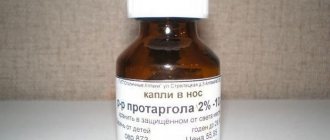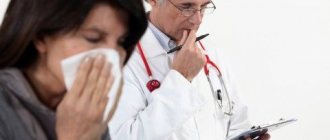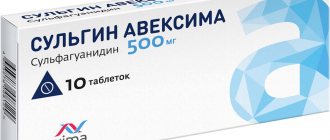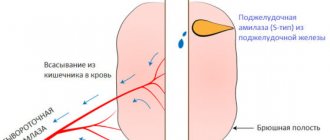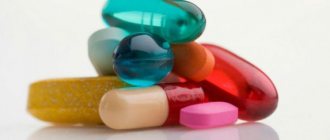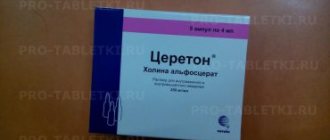Pharmacological action of Allokin-alpha
Allokin-alpha contains alloferon. Alloferon induces the synthesis of endogenous interferons and activates natural killer systems. This substance promotes rapid recognition and lysis of infected cells by cytotoxic lymphocytes.
When using Allokin-alpha, all parts of the patient’s immune system are strengthened: cellular and humoral.
During the treatment, the activity of T-lymphocytes, which constitute cellular immunity, increases. T-lymphocytes are designed to suppress and destroy the virus at the moment when interaction with the drug Allokin-alpha occurs.
Reviews of Allokin-alpha indicate that the drug is capable of producing endogenous interferon. It is this that allows the body to actively fight viruses.
After taking the drug, the transmission of neuromuscular impulses is stimulated, the conduction of excitation through cells and nerves is regulated. In addition, there is an increased effect of histamine, acetylcholine, serotonin, and oxytocin on smooth muscles.
The use of Allokin-alpha does not have a toxic effect on the patient’s body, and also does not cause activation of the immune system after the disease has been cured.
The main results of the pharmacological action of Allokin-alpha include:
- Reducing the duration of exacerbation of the disease;
- Complete removal of symptoms of viral infection;
- Qualitative reduction in the risk of possible complications;
- Excluding the occurrence of relapses in the future.
Allokin alpha and alcohol: is it possible or not?
This question is very common
, and therefore doctors warn the patient not to drink any alcoholic beverages during treatment. This ban is due to the fact that the medicine can interact unpredictably with ethanol. Drinking alcohol causes changes in the chemical composition of the blood. And the interferon produced is very sensitive to the slightest change in blood composition.
In the worst case, the ethanol concentration may increase and human intoxication may occur. Or there may be unpleasant side effects. In addition, ethanol can reduce the effectiveness of the drug, and then taking it will be useless.
In those who mixed the drug with alcoholic cocktails
, weakness in the limbs, impaired concentration of vision, dizziness and depression occurred. Large doses of alcohol led to central nervous system disorders: disorientation in space, acute psychosis, manic states and even personality disorders.
It is precisely because of such terrible consequences that you need to follow the doctor’s instructions, giving up idle pastime for the entire period of therapy. But you should not drink alcohol immediately after finishing treatment, but only after two weeks. Why is this happening? The production of interferon after Allokin injections remains at an elevated level for a long time, protecting the body from negative environmental influences. And drinking alcohol can reduce the body's immune defense. So it's better to think
before drinking, because this can lead to various consequences.
Is it possible to replace Allokin alpha? The drug is quite expensive, so it makes sense to look for analogues on a budget. Its price starts from 3500 rubles
, and this is only for 3 ampoules. But the drug is available without a prescription, and purchasing it will not cause inconvenience to the patient if you have the money.
There is no complete replacement for the drug. There are only a few similar drugs, but their effects will not be the same. At present, exact analogues of Allokin have not yet been created. Similar drugs include Giporamine, Lavomax, Amiksin and Groprinosin. Anyone buying these medications should know that their action will be different from Allokin, and the side effects may be completely different. For example, doctors often prescribe Amiksin
. Its active ingredient is completely different - tilorone. But Amiksin is also an immunomodulator that produces interferon.
Name:
Allokin-Alfa
Pharmachologic effect:
Pharmacodynamics.
Alloferon is an oligopeptide.
Alloferon is an effective inducer of the synthesis of endogenous α- and γ-interferons and an activator of the natural killer system. The drug stimulates the recognition and lysis of defective cells by cytotoxic lymphocytes. Studies have revealed the high effectiveness of the drug against infections caused by influenza A and B viruses, hepatitis B, herpes types 1 and 2 and human papilloma (oncogenic types). Alloferon does not cause general toxicity
, allergic reactions, does not have mutagenic, carcinogenic or embryotoxic effects, and does not affect reproductive function.
Pharmacokinetics.
It quickly penetrates into the blood, where it interacts with immunocompetent cells, after which determining the concentration of alloferon is difficult due to the close structural similarity of its metabolites to blood serum proteins. An increase in interferon concentration was observed 2 hours after administration of the drug and remained at a high level (2–2.5 times higher than the usual background) for 6–8 hours, reaching the initial values by the end of the day. Increased functional activity of natural killer cells was noted within 7 days after drug administration.
Indications for use:
Allokin-Alpha is used to treat patients suffering from chronic human papillomavirus infection
, which is associated with oncogenic types of human papillomavirus.
Alloferon can be used as monotherapy for human papillomavirus infection
in the absence of clinical and subclinical lesions of the cervix and anogenital area, but if such lesions are present, alloferon is recommended to be used in combination with other drugs.
Allokin-Alpha is prescribed in the complex therapy of chronic recurrent herpes of the second and first types
(in this case, therapy should be started as soon as possible after the first symptoms appear). Alloferon in combination with other drugs is used in the treatment of patients with moderate acute hepatitis B (therapy with Allokin-Alpha should begin no later than the seventh day after the appearance of jaundice).
Mode of application:
The drug Allokin-Alfa is intended for the preparation of a solution for subcutaneous administration
.
To prepare the solution, the contents of the ampoule should be dissolved in 1 ml of isotonic sodium chloride solution. It is not recommended to use other drugs as a solvent. Allokin-Alfa is prohibited from being mixed with other parenteral drugs in the same syringe. Allokin-Alpha solution should be used immediately after preparation. The duration of therapy and the regimen for using alloferon are determined by the doctor. For infections caused by oncogenic types of human papillomavirus
, 1 mg of alloferon is usually prescribed every 48 hours. The total recommended course dose of Allokin-Alfa is 6 injections.
For recurrent herpes infection
As a rule, during an exacerbation, 1 mg of alloferon is prescribed every 48 hours. The total recommended course dose of Allokin-Alfa is 3 injections.
Patients with acute hepatitis B
moderate severity, as a rule, after verification of the diagnosis, 1 mg of alloferon is prescribed three times a week. The total recommended course dose of Allokin-Alfa is 9 injections. Depending on the patient’s condition and the effectiveness of the therapy, after some time the doctor may prescribe a second course of using the drug Allokin-Alpha.
Side effects:
Possible: weakness, dizziness, formation of new elements of herpetic rash.
Contraindications:
Pregnancy; - lactation period; — age up to 18 years; - not prescribed to patients with individual intolerance to alloferon; - not used for the treatment of patients suffering from severe autoimmune diseases; — in pediatric practice, the use of alloferon is not recommended; - if patients develop dizziness during alloferon therapy, activities that require increased concentration should be excluded.
Interaction with other drugs:
In the treatment of chronic recurrent genital herpes, it can be prescribed in combination with acyclovir and its derivatives (the drugs have different mechanisms of action and complement each other in the treatment of viral infection). In acute hepatitis B, the drug is prescribed against the background of generally accepted basic therapy. No interactions with other drugs have been identified.
Which is used to treat two common unpleasant diseases: herpes and papillomavirus. The causative agents of these viral diseases constantly live in the human body, making themselves felt only when the immune system is weakened. This is where the manifestation of these insidious diseases begins. Special ointments, of course, help remove them, but the virus still remains to live in the body and sooner or later it will manifest itself again. Allokin-Alpha will help free a person forever from pathogens. Russian analogues, release form, indications and contraindications for use will be discussed in detail in this article.
Indications for use Allokin-alpha
When using Allokin-alpha, a person can get rid of the following diseases:
- From papillomavirus infection;
- From herpetic infection;
- From genital herpes;
- From chronic viral hepatitis C or B;
- For labial herpes;
- From cervical dysplasia (this disease is called erosion);
- For papillomas, warts, and condylomas;
- From mixed urogenital infections, as well as from influenza and ARVI.
Allokin-alpha should be used in cases where a person is diagnosed with a sharp decrease in immunity and an outbreak of a serious viral infection. In order to stop the development of infection, it is necessary to use a highly effective immunomodulator.
Composition of the drug and release form
Initially, scientists found out about alloferons.
They were in the body of animals into which tumors were transplanted. For 20 years, no one knew how to apply this knowledge in practice. Only in 2003 the first Moscow drug Allokin-Alpha was registered. Its use has already been approved by the Ministry of Health, but the product has not received wide publicity. After 5 years, all doctors already knew about the medicine, so the product did not receive additional advertising, but now people use it for many diseases. The USA, Russia, Japan and a few European countries have already received a patent for alloferon.
The drug Allokin-Alpha consists entirely of alloferon, which in its action is similar to an oligopeptide. In simple terms, the component activates increased activity of natural killers (killers of unnecessary bacteria) at the cellular level. Due to this, the body quickly returns to normal and is able to resist harmful infections.
The product looks like a whitish powder from which a solution is prepared. One ampoule of the drug contains alloferon, weighing about 1 mg. The ampoules are sold in cardboard boxes no larger than the size of an average lighter. One pack contains 1-10 ampoules, each of which has a plastic cell.
It is necessary to take Allokin-Alfa with caution with other immunomodulator drugs. It is necessary to regularly conduct blood tests if it is impossible to stop taking one of the medications.
Simultaneous use of Allokin-Alpha with Acyclovir as part of complex therapy is not allowed, because due to the different mechanism of action of both drugs, there is a mutual enhancement of antiviral effectiveness.
Contraindications
According to the instructions, Allokin-alpha should not be used in the following situations:
- During pregnancy at any stage;
- During the period of feeding the baby;
- The drug is not prescribed to persons under the age of majority (18 years);
- In case of hypersensitivity to the drug or its individual components;
- For autoimmune diseases (systemic lupus erythematosus, diffuse toxic goiter, scleroderma).
During the treatment period, experts recommend completely abstaining from drinking alcoholic beverages.
Domestic inexpensive analogues of the product in tablets
The drug has several substitutes. It is recommended to take analogues only after prior consultation with your doctor.
Alpizarin
Both products are produced by a domestic pharmaceutical company. However, the substitute is available in the form of tablets for oral administration and has a different active ingredient - tetrahydroxyglucopyranosylxanthene.
The generic belongs to the group of herbal medicines that have antiviral activity. Both medications have similar prescription recommendations and are used in the treatment of herpetic infections.
Indications (for analog):
- infectious processes of various localizations caused by the development of herpes simplex;
- pathologies that are viral in origin and affect the oral mucosa (aphthous stomatitis);
- lichen (shingles form);
- Kaposi's eczema (a disease caused by a herpetic infection);
- chickenpox;
- cytomegalovirus infection.
Dosage regimen: 1-2 tablets 3 to 4 times a day. The duration of treatment depends on the identified pathology and varies from 5 days to 3 weeks.
Children from 6 to 12 years old are prescribed 1-2 tablets 2-3 times a day. Children from 3 to 6 years old are recommended to take half or a whole tablet no more than 2-3 times a day.
The generic has fewer side effects (allergic reactions are possible).
The products have different contraindications, however, both the analogue and its substitute are prohibited for use during pregnancy. The substitute can be used during breastfeeding, unlike the main drug.
The generic can also be used in childhood. The main product is prohibited for use in childhood. The cost of the substitute is several times lower. Both medications are available on prescription.
Acyclovir
Allokin-Alfa (analogs are several times cheaper than the main drug) is not used in childhood, so other drugs should be used to treat children.
Acyclovir has a different active ingredient than the original drug - acyclovir. Moreover, the component is a synthetic substance. Both medications belong to the same pharmacological group of antiviral drugs. The products have similar recommendations for use, however, the substitute has a greater number of indications and can be used in the treatment of other diseases.
Indications:
- herpetic lesions of the skin and mucous cavity, including infection of the genital organs;
- preventive treatment of herpes infection in patients with a normal immune system and patients with immunodeficiency;
- complex treatment for HIV infections, AIDS, as well as for patients who have previously undergone a bone marrow transplant;
- chicken pox;
- herpes zoster form.
The generic treatment regimen is determined individually, based on the disease and its form (stage). The recommended dosage is 0.2 g of the drug up to 5 times a day. The duration of therapy is determined by the attending physician and can be up to 1.5 weeks.
The substitute, unlike the original solution, has more side effects. However, an analogue can be prescribed in childhood, starting from 3 years. The generic can also be used during pregnancy (for the main drug, pregnancy is a complete contraindication).
The cost of the substitute is several times lower than the cost of the original product. The drugs are available by prescription.
Valaciclovir
A drug with similar indications is Valaciclovir. Unlike Allokin-Alfa, the generic has a different active ingredient - valacyclovir hydrochloride. At the same time, the substitute is cheaper and is often prescribed when the main drug is poorly tolerated.
Both medications belong to the same pharmacological group of antiviral (antiherpetic) drugs and have similar recommendations for use.
Indications:
- infectious damage to the skin and mucous membranes by the herpes virus;
- lichen (shingles form);
- preventive treatment of herpes infection.
The drugs have various contraindications. Thus, the generic is not used in cases of intolerance, as well as after bone marrow or kidney transplants. However, Valaciclovir has additional limitations in the form of functional kidney disorders and HIV infection.
The analogue can be prescribed in children from 12 years of age. The main remedy is not used in minors.
Valaciclovir is an analogue of Allokin-Alfa
Unlike the main medicine, a substitute can (according to the doctor’s recommendations) be used while carrying or feeding a child.
The analogue has a large number of side effects, so great caution is required when using it, especially in patients with various concomitant diseases. Both drugs are available by prescription.
Directions for use and dosage
According to the instructions, Allokin-alpha should be administered subcutaneously. To obtain an injection solution, you need to dissolve the drug in 1 milliliter of physiological sodium chloride solution.
The course dosage of most treatment regimens is Allokin-alpha No. 6.
If the patient relapses more than 6 times a year, and the duration of the acute period is more than five days, treatment is recommended as follows:
- At the first relapse, 3 doses of the drug, 10 milligrams each, are administered. Injections must be performed every other day. Course of treatment – 5 days;
- If a second relapse occurs, 3 injections of 1 milligram each should be administered. The break between injections is 1 day;
- When a subsequent relapse is diagnosed, the dose of Allokin-alpha should be reduced to 0.1 milligrams (3 injections are given, with a break between them of 1 day).
Allokin-alpha No. 6 is administered subcutaneously every other day in the treatment of complex cases of HPV (simultaneously with other medications).
If relapses occur less than 6 times in 12 months, treatment with the drug Allokin-alpha looks like this:
- At the first relapse, doctors make 3 injections of 1 milligram each (the break is 1 day);
- When diagnosing the next relapse - 3 injections of 0.1 milligrams.
In acute hepatitis, it is recommended to use Allokin-alpha only when the final diagnosis has been established (administer 10 milligrams 3 times every 7 days). Duration of treatment – 3 weeks. As a result, the patient receives 9 injections.
If the disease is less severe, the patient is given 1 milligram of the drug.
According to reviews, Allokin-alpha No. 6 is often prescribed in combination with lycopid and isoprinosine.
How best to take medication
If you want to achieve the most positive effect in a short time, it is better to combine it with other drugs. Not only the human papillomavirus, but also other infections need to be treated with complex therapy.
Several antiviral agents may be included in treatment. It is also recommended to contact clinics and cosmetology centers to remove growths through physical action (in advanced cases).
Basically, Allokin-Alpha reviews for HPV are neutral, there are both positive and negative. Patients and doctors say that the papillomavirus soon ceases to bother them and the lesions disappear.
Unfortunately, there are also a lot of negative reviews. In the usual case, they are written by patients who are in a serious stage and have turned to medicine for help when there is little hope of recovery.
Monotherapy in the early stages of papillomavirus development is carried out, but under the supervision of a qualified physician. If you look at statistics, you can see that in almost ninety-eight percent of cases it is possible to achieve remission - a period when all symptoms of the disease disappear.
"Allokin-Alfa": Russian analogues and prices
At the moment, there are no problems with purchasing an antivirus product in any region of Russia, especially in Moscow. The cost of the drug is quite high and differs significantly from pharmacies and manufacturers. On average, the price of one package costs $70-150.
Today, the drug "Allokin-Alpha" has many analogues, the most common are:
- "Cervarix". A vaccine aimed at treating the papilloma virus. The composition of the drug "Cervarix", the price of which in the Russian Federation ranges from 4250 to 5400 rubles, does not include the pathogens themselves, including inactivated ones. The basis of this medication is virus-like particles applied to the surface of carrier proteins. The papilloma virus poses a huge danger to humans, since in some cases it leads to the appearance of malignant tumors in the cervix. After completing the full course of vaccination, immunity to HPV was determined in all patients. The duration of the immune response to Cervarix from the moment of the first injection is 4 years. The research confirmed the high effectiveness of the vaccine in preventing infection with the virus in patients of different age groups. "Cervarix", the price of which is significantly higher than the equally good analogue of "Groprinosin", is capable of inducing cross-immunity, which ensures the body's protection from various variants of the papilloma virus.
- "Gardasil." Instructions for use allow the use of the vaccine for the treatment of children and adolescents over the age of 9 years for the prevention of precancerous dysplastic conditions and cervical cancer, as well as genital warts on the genitals and around the anus associated with HPV. In Russia, the cost of the medicine is 3500-6400 rubles.
- The main form of release of the drug "Groprinosin" is tablets. The instructions say that the active ingredient of the medicine is inosine pranobex. In the pharmacy chain, the drug comes in blisters, 10 tablets each. The average cost of a package with 20 tablets is 500 rubles, 30 - 700 rubles, and 50 - 1250 rubles. The drug is effective in the treatment of Dawson's encephalitis, which most often occurs in children who have had measles before the age of two. The instructions recommend taking “Groprinosin” (tablets) in case of reduced immunity, if the cause of this is various kinds of viruses.

